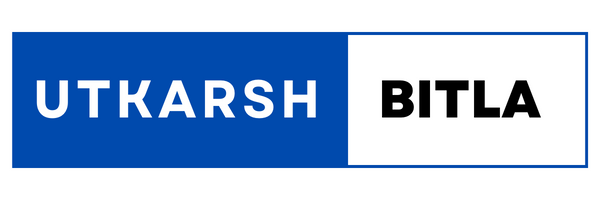Nanotechnology has the
potential to revolutionize agriculture by providing innovative solutions for
mitigating abiotic stress. Abiotic stresses, such as drought, salinity, extreme
temperatures, and nutrient deficiencies, can severely impact crop growth and
productivity. There are several ways we can use nanotechnology to reduce the
impact of abiotic stress on crops, few important and currently working
applications I am going to explain in this blog
Nanosensors: Nanosensors
are designed with specific sensing mechanisms that allow them to detect and
measure the desired stress factors. These sensors are capable of detecting changes
in temperature, humidity, soil moisture, and nutrient levels at a very small
scale. The determinate signal generated by the nanosensor is collected and
processed to obtain meaningful data about stress levels. The real-time data
collected by these sensors can help farmers make up-to-date decisions about
irrigation, fertilizer application, and other agronomic practices, thereby
optimizing crop growth under stress conditions. Nanosensors offer several
advantages for abiotic stress mitigation, with high sensitivity, rapid
response, and miniaturization, allowing for positioning in a varied range of
environments and plant systems. They can benefit from improving resource
management, decreasing crop losses, and improving overall agricultural
productivity.
Nanoencapsulation of
agrochemicals: Nanoencapsulation of agrochemicals includes
the encapsulation of active components, such as fertilizers, pesticides, and
growth regulators, inside nanoscale carriers. These nanocarriers shield the
active ingredients from degradation, improve their stability, and deliver
controlled release mechanisms. The smaller particle size of the nanocarriers
increases the surface area available for interaction with plants, facilitating
better absorption and uptake of the encapsulated agrochemicals. This targeted
delivery system confirms that the agrochemicals reach the proposed site of
action, resulting in improved efficacy, reduced dosage requirements, and
minimized environmental impact. Nanocarriers can help reduce the leaching of
agrochemicals into groundwater and the volatilization of volatile compounds.
The encapsulation provides a physical barrier that slows down the release of
agrochemicals into the surrounding environment, minimizing their loss through
leaching or evaporation.
Nanomaterial-based soil
amendments: Nanomaterial-based soil amendments have shown
potential for mitigating abiotic stress in agriculture. Nanomaterials like
nano-clays, nanoscale zeolites, and nano-hydrogels, these materials have high
water absorption and retention capabilities, allowing them to hold water and
slowly release it to plant roots, even during drought conditions. These
nanomaterials can be integrated into the soil to increase its water-holding
capacity, nutrient retention, and cation exchange capacity. These nanomaterials
can enhance soil structure and fertility, leading to better water and nutrient
availability to plants. Nanoscale zeolites or nanoparticles coated with
nutrients can improve nutrient availability in the soil. These materials have
high surface areas, which enhance their ability to adsorb and retain nutrients,
preventing their leaching or volatilization. Subsequently, crops develop more resistant
to drought and nutrient deficiencies. Silicon nanoparticles induce the
synthesis of stress-related proteins and antioxidants in plants, boosting their
ability to withstand abiotic stress. Nanomaterials can act as signaling
molecules, triggering specific responses in plants that help them adapt and
survive under stress conditions.
Nanobiosensors for plant
stress monitoring: Nanobiosensors are made to identify and
select specific biomarkers that are indicative of plant stress. These
biomarkers can include stress-related compounds such as reactive oxygen species
(ROS), antioxidants, hormones, or other molecules that exhibit changes in
concentration or activity under stress conditions. Carbon nanotubes, graphene,
metal nanoparticles, or quantum dots, are employed as sensing elements in the Nanobiosensors.
These nanomaterials possess unique properties, such as high surface-to-volume
ratio, conductivity, or fluorescence, which make them sensitive to the target
biomarkers. By monitoring these biomarkers, farmers, and researchers can
monitor plant health and evaluate the harshness of abiotic stress in real time.
This facilitates early detection of stress conditions, allowing for quick
intervention measures such as regulating irrigation schedules, applying proper
treatments, or executing stress-tolerant crop management practices.
Nanocarriers for genetic
material delivery: Nanotechnology can facilitate the
delivery of genetic materials, such as genes or RNA molecules, into plant
cells. This technique, known as nano gene delivery, allows for the targeted
modulation of gene expression and the development of stress-tolerant crop
varieties. The stress-responsive genes or RNA molecules are encapsulated within
the nanocarriers, forming nanocomplexes. The nanocarriers enhance the uptake of
genetic material into plant cells, increasing the efficiency of delivery. The
nanocarriers safeguard the genetic material from enzymatic degradation and enable
its transport through the cellular barriers of plant cells. The nanocarriers
then release the encapsulated genetic material into the cytoplasm or nucleus of
the plant cells. The released genetic
material enters the cell nucleus and interacts with the plant's cellular
machinery. The stress-responsive genes or RNA molecules are transcribed and
translated, leading to the production of stress-related proteins or the
modulation of gene expression. Delivering stress-responsive genes or RNA
molecules using nanocarriers, researchers can introduce specific genetic
modifications that enhance a plant's ability to tolerate and adapt to abiotic
stresses. This technology has the potential to revolutionize agriculture by
developing stress-tolerant crop varieties that can thrive in challenging
environmental conditions
Overall, nanotechnology
holds immense prospective for abiotic stress mitigation, there are also
concerns regarding its safety and potential environmental impacts. Extensive
research and regulatory oversight are necessary to ensure the responsible and
sustainable use of nanotechnology in agriculture. In the coming decade, nanotechnology
can be a new tool for abiotic stress mitigation.




.jpg)

